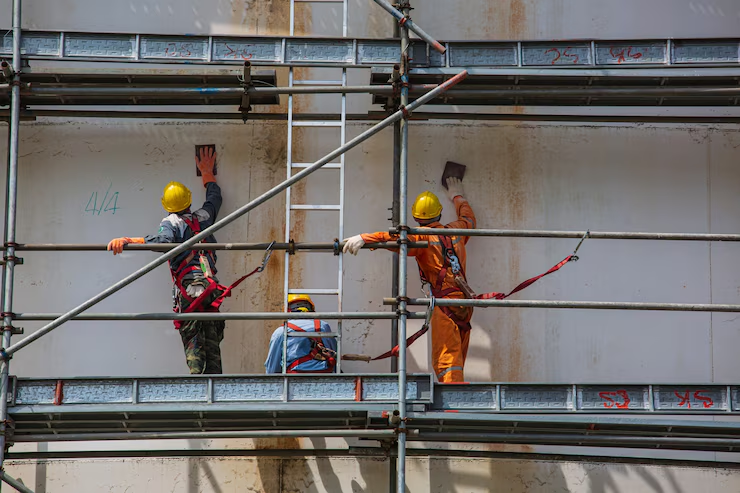
When you apply for a Loan Against Property (LAP), the value of your property becomes a key factor in determining how much you can borrow. Maximizing your property’s value can help you secure a larger loan and more favorable terms. Whether you’re seeking funds for business expansion, home renovation, or personal needs, ensuring your property is appraised at its highest potential value is crucial.
Here’s a guide on how to maximize your property’s value when applying for a Loan Against Property.
1. Enhance Curb Appeal
First impressions matter, and when it comes to property valuation, the exterior of your property plays a major role. Simple upgrades like a fresh coat of paint, landscaping, and repairing any visible damage can significantly boost your property’s curb appeal. A well-maintained exterior suggests that the property is cared for, which can lead to a higher valuation.
Tips:
- Repaint exterior walls and gates
- Maintain a clean, manicured garden or outdoor space
- Repair cracked sidewalks, driveways, or broken windows
2. Upgrade Key Areas
Investing in renovations, particularly in key areas like the kitchen and bathrooms, can have a large impact on your property’s value. Modern, functional spaces are highly attractive to appraisers. Even small upgrades, like new fixtures or updated countertops, can make a significant difference.
Tips:
- Install energy-efficient appliances in the kitchen
- Upgrade bathroom fixtures and lighting
- Repaint walls in neutral, modern colors
3. Fix Structural Issues
Any visible structural issues, such as leaks, cracks, or dampness, can reduce the value of your property. Make sure to fix these problems before the property evaluation. Appraisers will lower the value of properties with visible damage, so addressing these concerns upfront is critical.
Tips:
- Repair leaky roofs and fix water damage
- Seal any cracks in walls or ceilings
- Check for and remedy damp areas, particularly in basements or attics
4. Regular Maintenance
Regular maintenance goes a long way in preserving the value of your property. Ensure that basic utilities, plumbing, and electrical systems are functioning properly. If your property has been neglected over time, these factors can negatively impact its valuation.
Tips:
- Ensure plumbing and electrical systems are up to date
- Keep HVAC systems well-maintained
- Clean and maintain gutters and drainage systems
5. Legal Documentation and Zoning Compliance
Ensure all legal paperwork, including the property title, building permits, and tax receipts, is up-to-date and in order. This adds legitimacy to your property and provides peace of mind to the lender, positively impacting the loan process. Additionally, check that your property complies with local zoning laws. Any non-compliance can affect the property’s valuation and your ability to secure a loan.
Tips:
- Organize all property documents (ownership papers, tax records, etc.)
- Ensure property is zoned for its current and intended use
- Clear any outstanding legal issues or disputes related to the property
6. Energy Efficiency
More and more appraisers are factoring in energy-efficient upgrades when determining property value. Installing energy-efficient windows, solar panels, or energy-saving appliances can increase your property’s worth. Not only does this make your property eco-friendly, but it also positions it as a lower-maintenance option for future buyers, enhancing its overall value.
Tips:
- Install solar panels or energy-efficient windows
- Upgrade insulation in walls and attics
- Replace older appliances with energy-efficient models
7. Showcase Location Advantages
Properties in well-developed, accessible areas typically receive higher valuations. Highlighting proximity to schools, hospitals, public transport, and commercial hubs can enhance the perceived value of your property. If your property is in an area with a rising real estate market, mention this during the evaluation.
Tips:
- Provide information about nearby amenities
- Highlight upcoming infrastructure developments (metro stations, highways, etc.)
- Emphasize low crime rates and neighborhood safety
8. Stage the Interior
An appraiser’s perception can be influenced by how the interior of the property is presented. Clean, declutter, and stage your home to create a spacious and welcoming environment. Staged properties not only look better, but they also allow appraisers to envision the property’s full potential, leading to a higher valuation.
Tips:
- Declutter rooms to make them appear more spacious
- Use simple and tasteful decorations
- Ensure rooms are well-lit and clean
9. Market Research
Before you apply for a Loan Against Property, research the local real estate market to understand what similar properties in your area are being valued at. This will give you a benchmark for the potential value of your property and help you decide on any last-minute upgrades.
Tips:
- Check property values of similar homes in your locality
- Keep an eye on property market trends
- Use real estate websites for comparative market analysis
10. Work with a Professional Appraiser
Finally, consider hiring a professional appraiser before you approach the bank. This way, you’ll get a fair and realistic estimate of your property’s value. With a professional appraisal, you can take necessary steps to address any issues and further improve your property’s value before officially applying for a loan.
Maximizing your property’s value before applying for a Loan Against Property not only boosts your chances of getting approved but also ensures you get the highest possible loan amount. By making strategic improvements, maintaining your property, and presenting it in the best light, you can position yourself for financial success.
For more information or assistance in securing a Loan Against Property, contact Suvidha Finance today.
Contact Suvidha Finance:
- Phone: +91 83970 44041
- Email: info@suvidhafinance.com
- Website: suvidhafinance.in




















